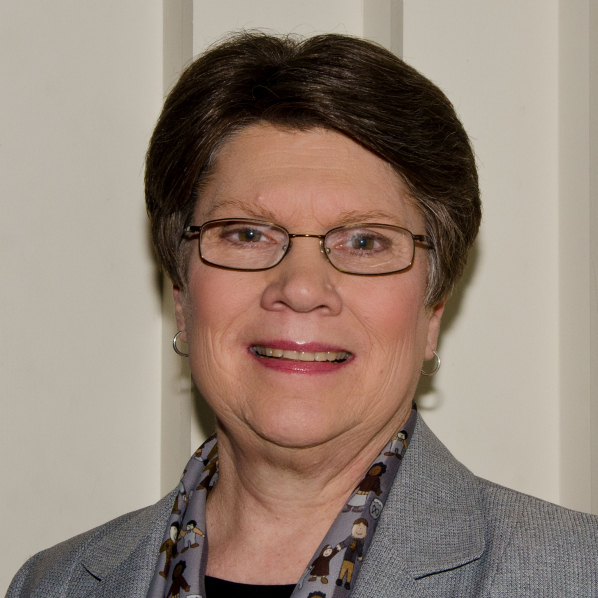

On behalf of the Faithful Reform in Health Care network, whose members are at the heart of my work, it is my honor and a great privilege to be named a White House Champion of Change. This recognition at this moment is particularly meaningful as we observe the second anniversary of the Patient Protection and Affordable Care Act. Representing the first time in our history that we made a national legislative commitment to making health care accessible to almost everyone who lives in the United States, this commitment addresses the moral imperative of health care for all. It is that commitment which has called people of faith into this work.
For decades, faith communities have worked both individually and collectively to move our nation toward a more inclusive and just system of health care – with particular focus on those who are poor and vulnerable. Since 2008, members and friends of Faithful Reform have been guided in their work by A Faith-Inspired Vision of Health Care, a collaborative statement of faith values based on the sacred writings and social principles of the interfaith community. Signed by hundreds of organizations and thousands of individuals representing every state, this statement was delivered to President Obama and Members of Congress on several occasions to help identify the faith community's perspective on how a present day government might respond to the moral imperative of health care for all. This vision states, "As people of faith, we envision a society where each person is afforded health, wholeness, and human dignity.” That vision embraces a system of health care that is inclusive, affordable, accessible, and accountable. Our support for various provisions of the Affordable Care Act is based on this vision statement.
While many of us have participated in the call-in days and prayer vigils in support of health system change, perhaps one of our greatest contributions to health care reform has been that of offering the voices needed for dialogue. We know that the debate surrounding health care reform must move beyond what is politically prudent or economically feasible to dialogue which embraces compassion and justice and the moral imperative of health care for all. Because our congregations are microcosms of the political diversity of our nation, people of faith are uniquely positioned to engage in such dialogue and to encourage conversation that transcends ideological difference and political partisanship. We can do this because we understand that social change is a process that requires the transformation of hearts and minds. We know that the Children’s Crusade launched by Mother Jones in the 1850s ultimately took over 100 years to get the child labor laws passed that got children out of mines and into school, music lessons, after-school activities, and play dates.
Similarly, the enactment of civil rights for African Americans and voting rights for women resulted from decades of changing hearts and minds that transformed reality from accepting what was to the vision of what should be. By engaging in dialogue with people in our congregations around sacred teachings that call us to heal and protect our brothers and sisters, we have the opportunity to move beyond the status quo of 50 million uninsured people who are on their own, to a vision in which we all share equitably in our country’s bountiful health care resources. By educating people about the ways in which the Affordable Care Act, when fully implemented, will more fully address the moral concern for accessible and affordable health care for all, we are building toward the health care future we envision.
Over the last 50 years, the vision for our national infrastructure led to investments in a power grid, phone systems, water systems, and interstate highways. The common good has been served. Society as a whole and individuals within it have flourished. However, our health system has been stuck in the 1940s – like the old family homestead, at the end of a meandering country road, with a private well and an individual generator, desperately in need of costly repairs. The Affordable Care Act is our first step toward building a health care infrastructure – ie, a system of health care – that would move us toward a vision of a new dwelling that includes everyone and works well for all of us. In such a transformation, all children and adults will live healthier and longer lives because they can get needed care; medical costs will be affordable for individuals, institutions, businesses, and governments; and our health system will be well-managed, more efficient, and more effective.
People of faith are building for that future knowing that fixing health care isn’t just a question of “may the best plan win.” There are no perfect plans that are best for everybody. But we know that in education and dialogue grounded in moral values we should be able to find common ground for the common good. The Affordable Care Act was a remarkable first step along the path to where we want to be. By staying focused on our values of community, human dignity, shared responsibility, compassion, stewardship of resources, and concern for those who are vulnerable, we will continue to be at the heart of the transformation that will be needed to help shape a sustainable and more compassionate health care future.
Rev. Linda Hanna Walling is the Executive Director of Faithful Reform in Health Care, the largest interfaith coalition of national, state and local organizations and individuals working for a health care future that embraces an inclusive, accessible, affordable, and accountable system of health care in the United States.


